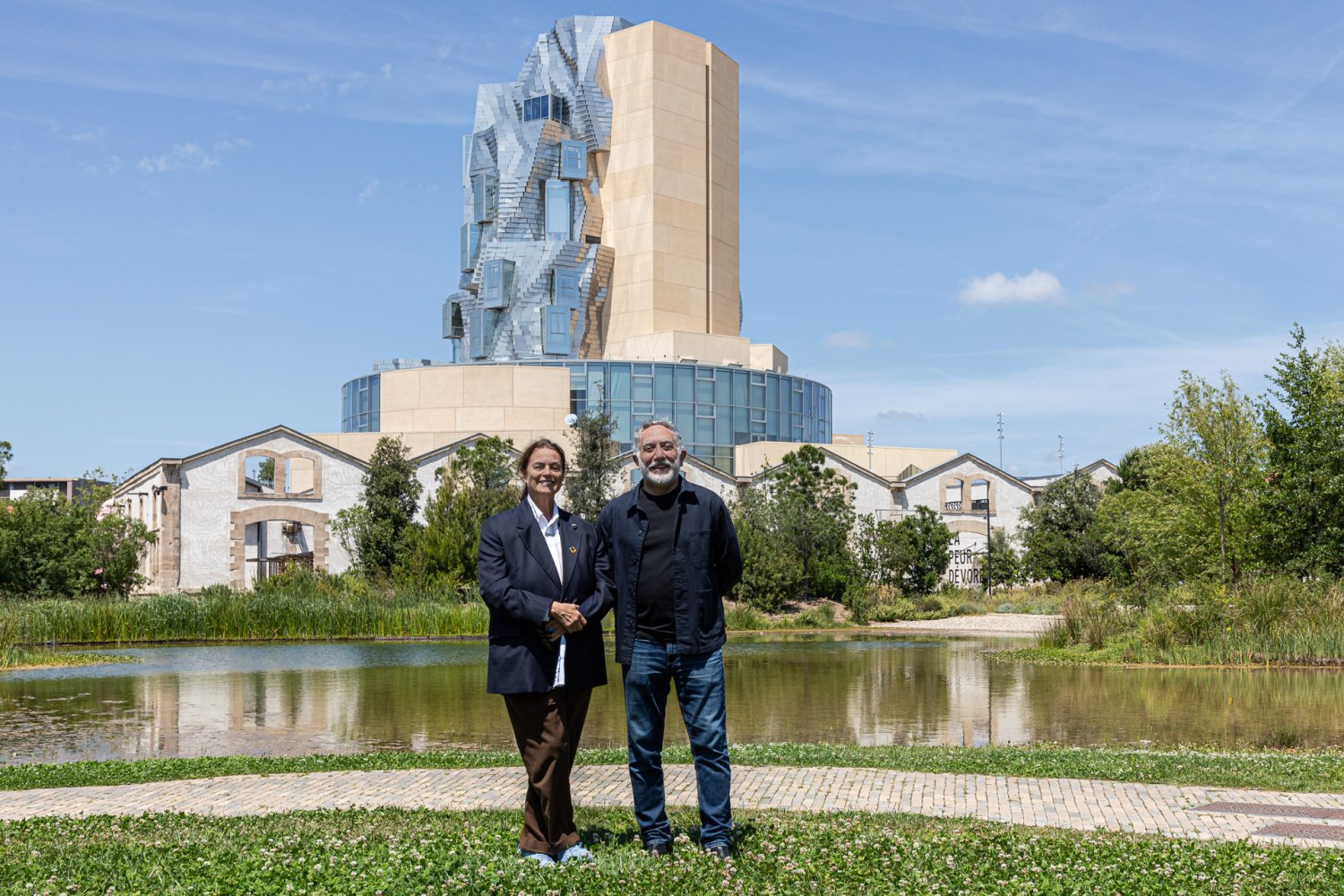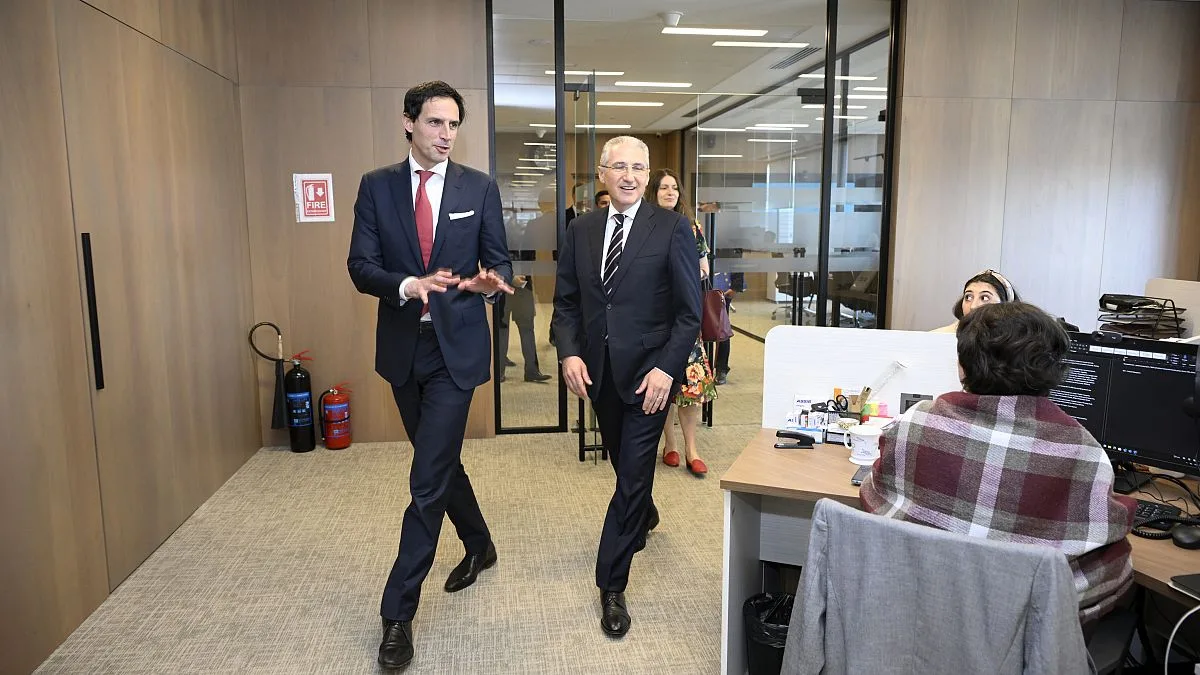Today, the MIT School of Architecture and Planning (SA+P) and the LUMA Foundation unveiled the MIT-LUMA Lab, a groundbreaking initiative aimed at fostering innovative intersections between art, science, technology, conservation, and design. This lab is positioned to empower visionary thinkers, assist local communities grappling with climate challenges, and scale up solutions addressing urgent issues in the Mediterranean region.
Key focus areas of the lab will encompass collaborative scholarship, research on design and sustainability, educational exchanges, innovation to translate ideas into actionable solutions, and the co-production of exhibitions and events. By fostering these collaborations, the MIT-LUMA Lab aspires to establish a new model that other institutions can emulate in their quest for innovative solutions to contemporary global challenges.
This initiative is made possible through a significant contribution from the LUMA Foundation, a Zurich-based nonprofit established by Maja Hoffmann in 2004. The foundation champions contemporary arts and supports multidisciplinary projects aimed at enhancing awareness of environmental issues, human rights, education, and culture.
Such themes come alive through programs initiated by LUMA Arles, which began in 2013 on a sprawling 27-acre interdisciplinary campus known as the Parc des Ateliers in Arles, France. This site serves as a dynamic venue for exhibitions, artist residencies, research labs, and educational initiatives.
“The LUMA Foundation remains dedicated to addressing current climate emergencies by exploring potentials within diverse engagement,” says Maja Hoffmann, founder and president of the foundation. “Cultural diversity, pluralism, and biodiversity are foundational to our mission and influence all our endeavors.”
Focusing on the Mediterranean
Maja Hoffmann further states, “The Mediterranean, known for its rich cultural tapestry and historical significance, is at the heart of our thoughts. Concentrating the MIT-LUMA Lab’s efforts in this region extends opportunities for positive change across various global ecosystems.”
“Our projects at LUMA Arles and our research laboratory on materials and resources, Atelier Luma, positioned in one of Europe’s key natural reserves, combined with MIT’s forward-thinking perspective, create the ideal environment for exploring new frontiers in addressing significant civilizational challenges,” she adds. “Together, we aim to produce new knowledge and practices that benefit future generations, ensuring they inherit an even better world.”
Hashim Sarkis, dean of SA+P, emphasizes, “While we may not have all the answers at MIT, we excel at asking the right questions, crafting effective experiments, and building meaningful collaborations.” He expresses gratitude towards the LUMA Foundation for its support of faculty research aimed at engaging local communities and creating job opportunities, and for educational collaborations that empower students committed to sustainability.
The Mediterranean region, chosen as the MIT-LUMA Lab’s focal point, is one of the planet’s most vital yet vulnerable areas. The sustainability of its forests, oceans, and deserts is crucial for maintaining the environment and supporting life as we know it. Those residing there often bear the brunt of even slight climate shifts.
Climate Research and Action: A Central Priority for MIT
To counteract negative environmental trends, SA+P is forging international partnerships that both provide expertise and glean insights from communities most affected by climate change. The MIT-LUMA Lab serves as the first of what is envisioned as a series of regionally focused labs under the banner of a collaborative platform called Our Global Commons. This initiative aims to tackle present-day climate challenges through community empowerment, long-term partnerships around research and education, and job creation. Faculty-led fieldwork and active student engagement will play pivotal roles.
Our Global Commons is part of MIT’s larger initiative to escalate efforts against climate change. In February 2024, President Sally Kornbluth launched the Climate Project at MIT, a comprehensive program to mobilize resources and capabilities for research and development of scalable climate solutions. The Institute plans to appoint its first vice president for climate to oversee this pioneering effort.
“With the Climate Project at MIT, we aspire to make a significant impact on pressing global climate challenges, and this can only be accomplished through collaboration with brilliant minds worldwide,” states Kornbluth. “The MIT-LUMA Lab is set to ignite valuable new ideas and partnerships by connecting us with thought leaders familiar with the cultural and environmental fabric of the Mediterranean.”
Sarkis adds, “We are excited about the collaboration with LUMA as we tackle climate issues. Their expertise in bridging art and science and their commitment to advancing sustainability aligns perfectly with our goals. As climate change disrupts our society, it is crucial to reinforce our tradition of working with communities worldwide, making collective efforts among local populations, governments, and academia essential for real change.”
Photo credit & article inspired by: Massachusetts Institute of Technology



